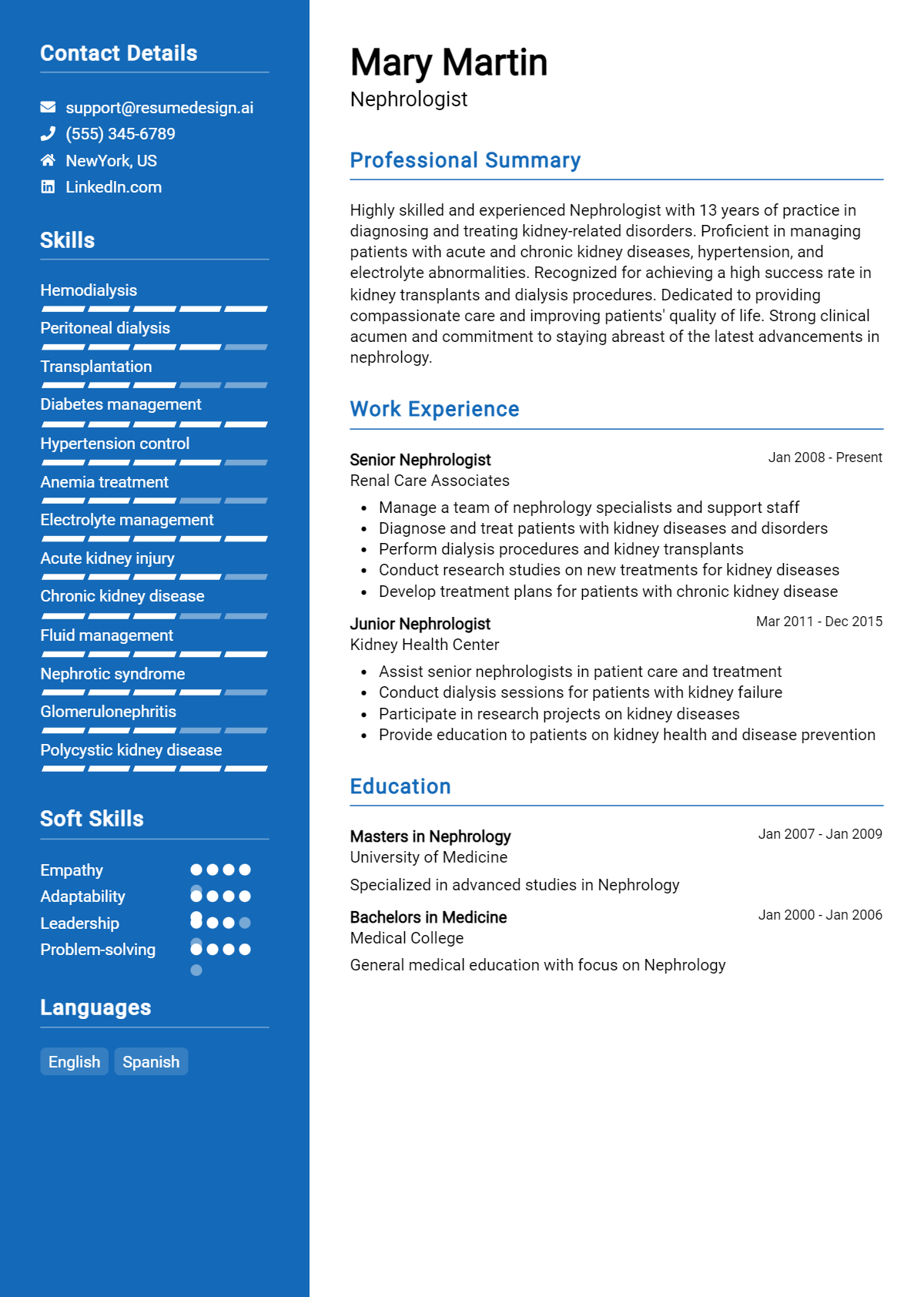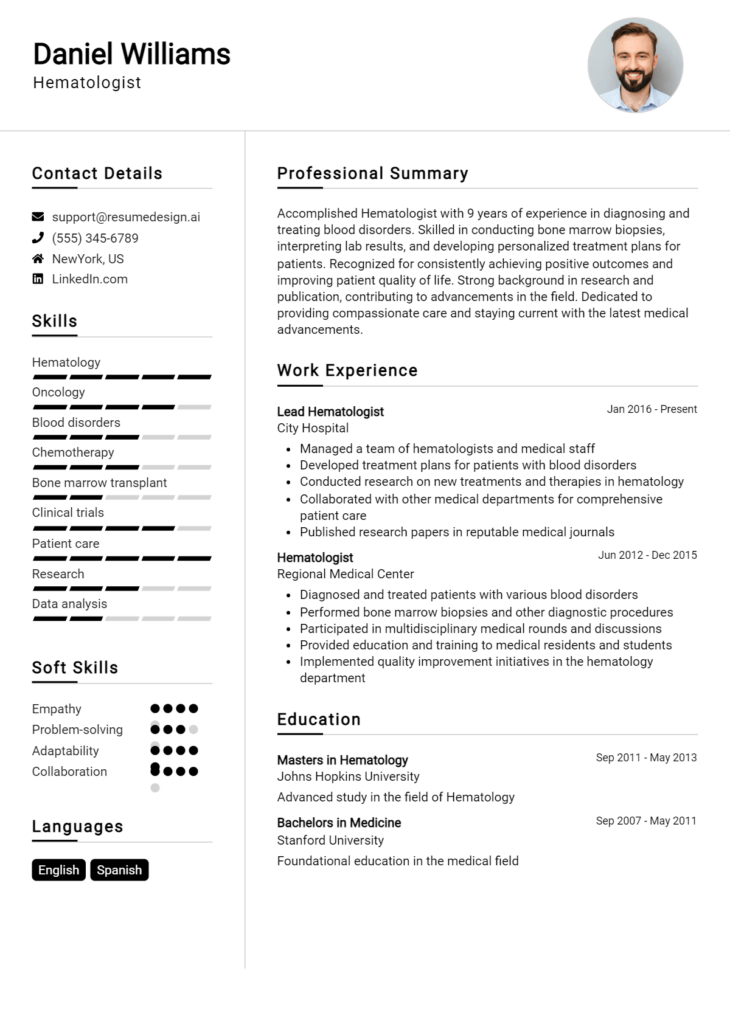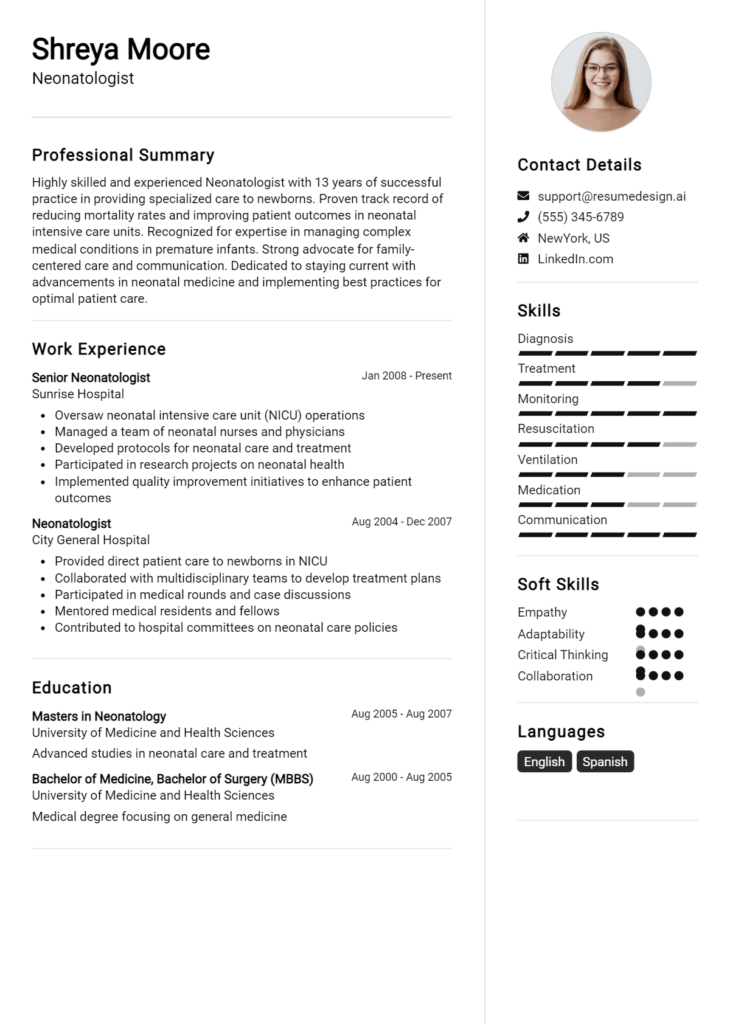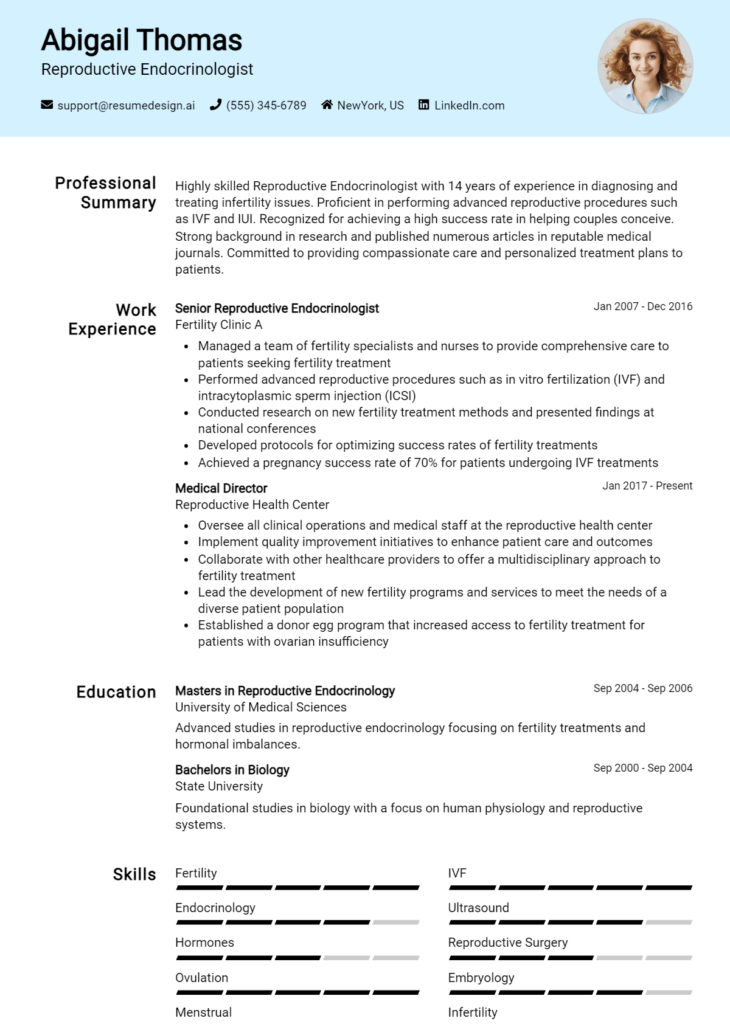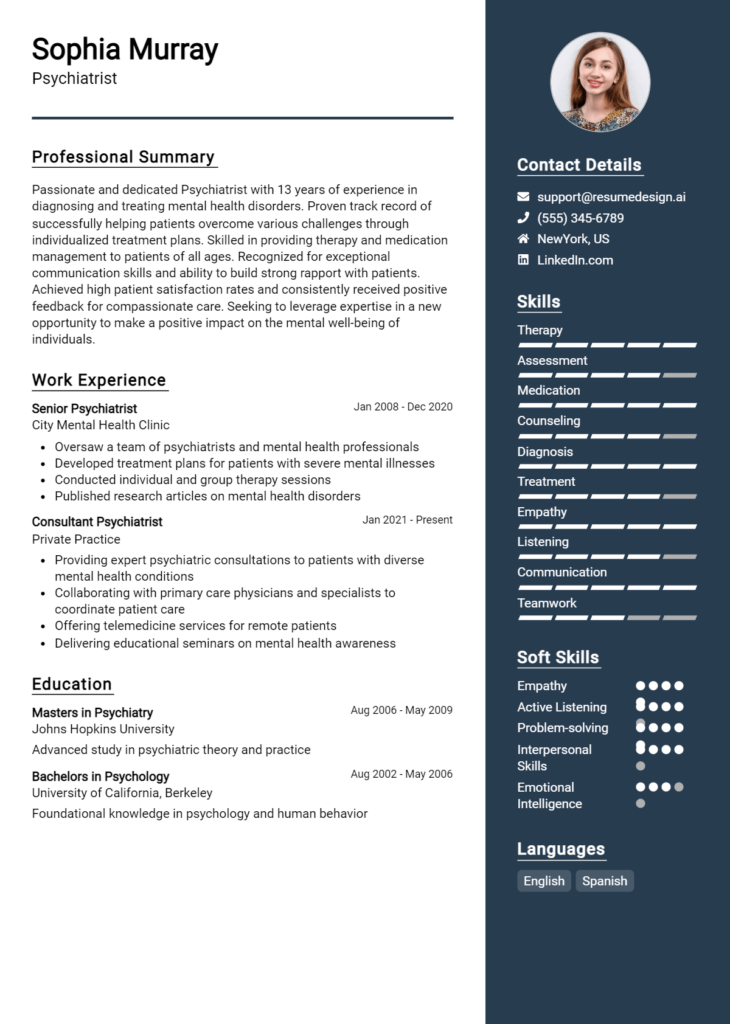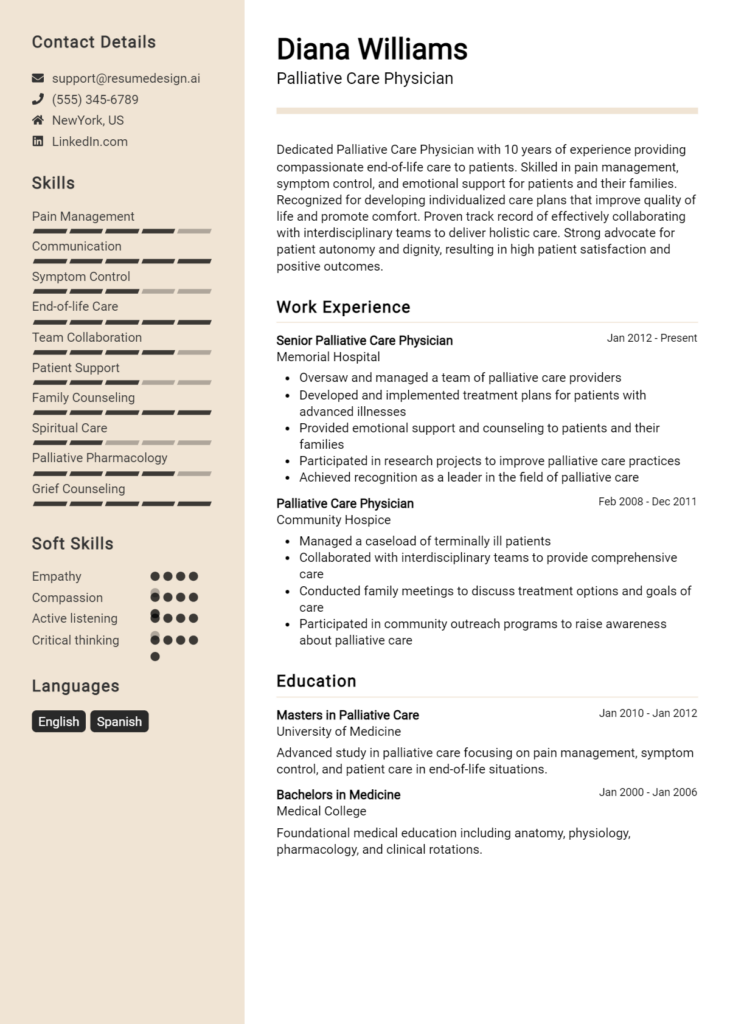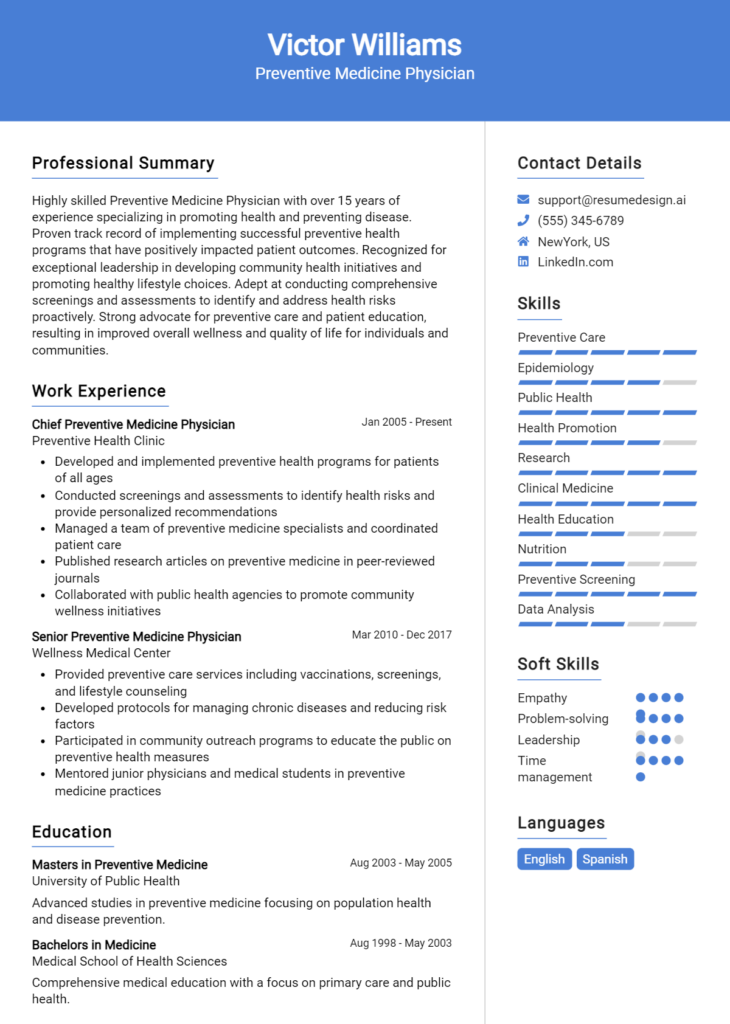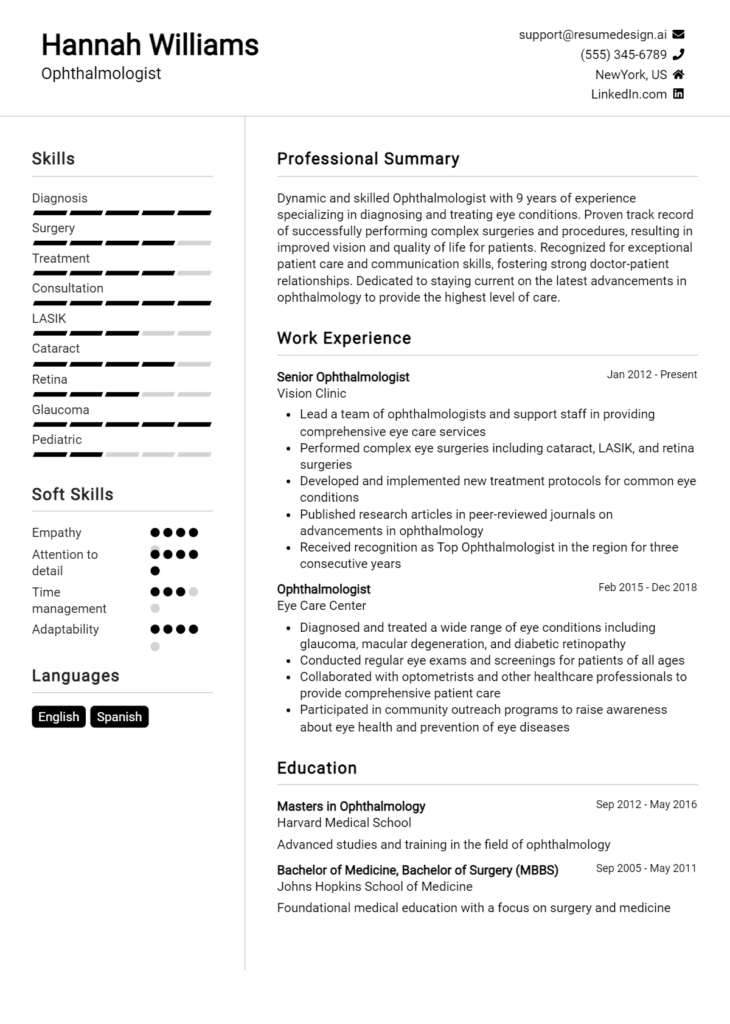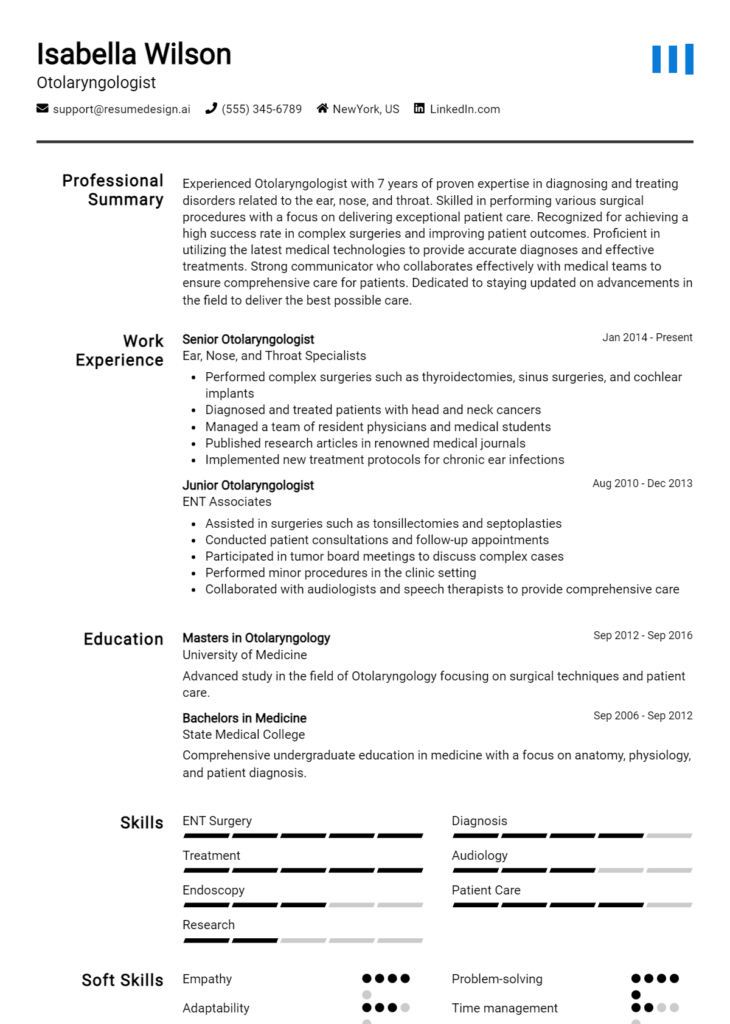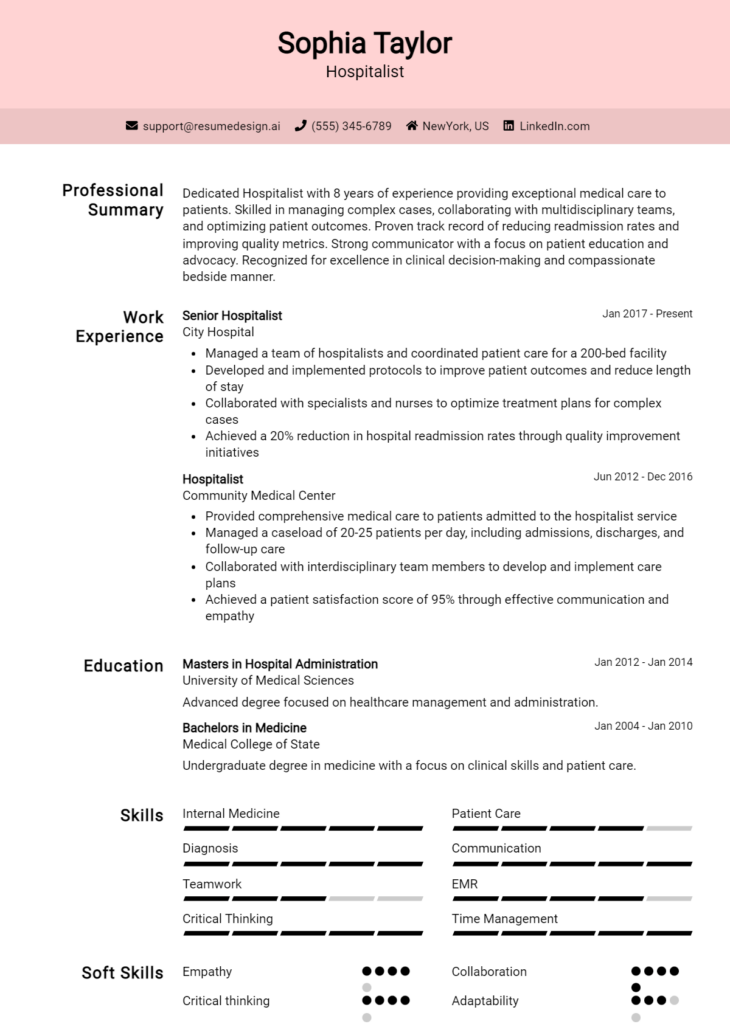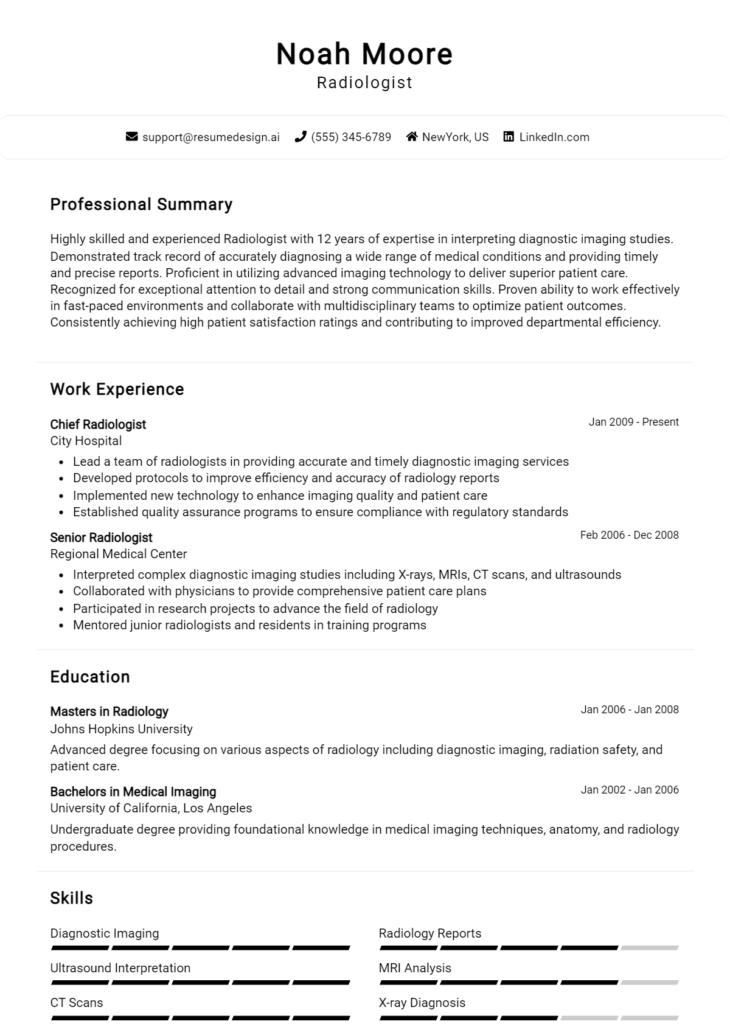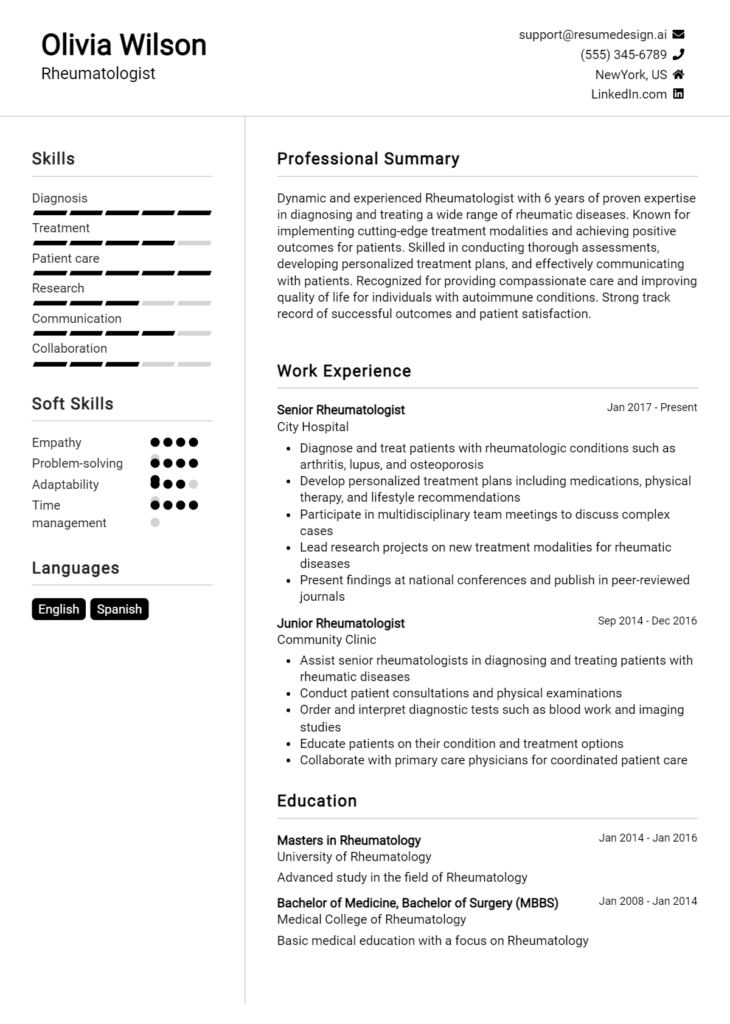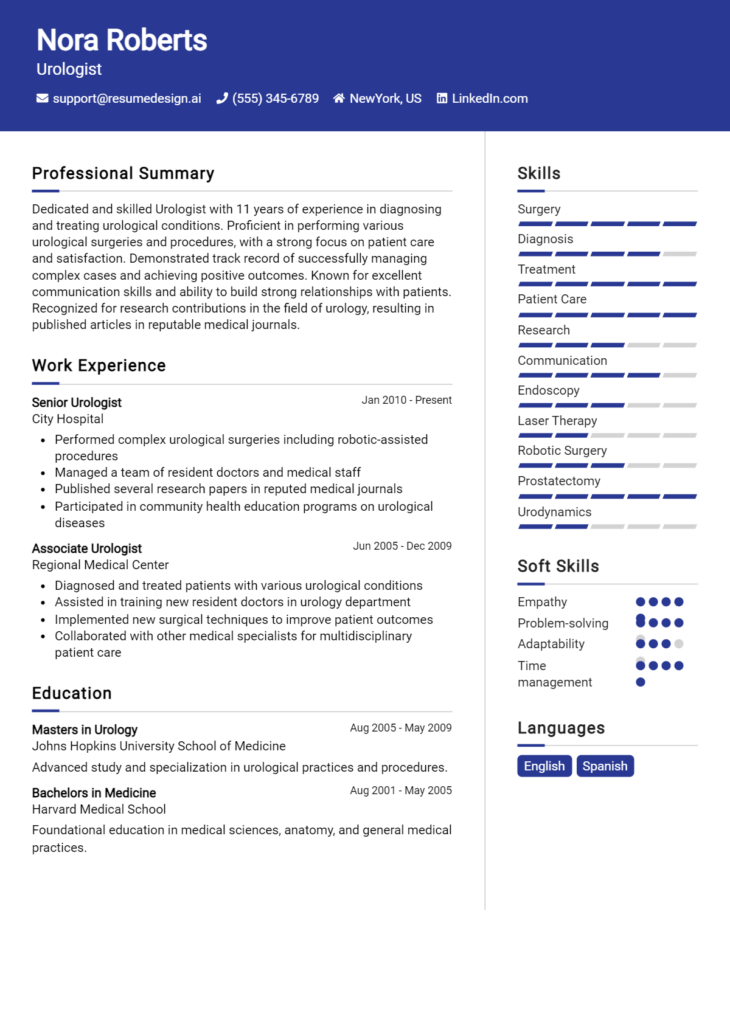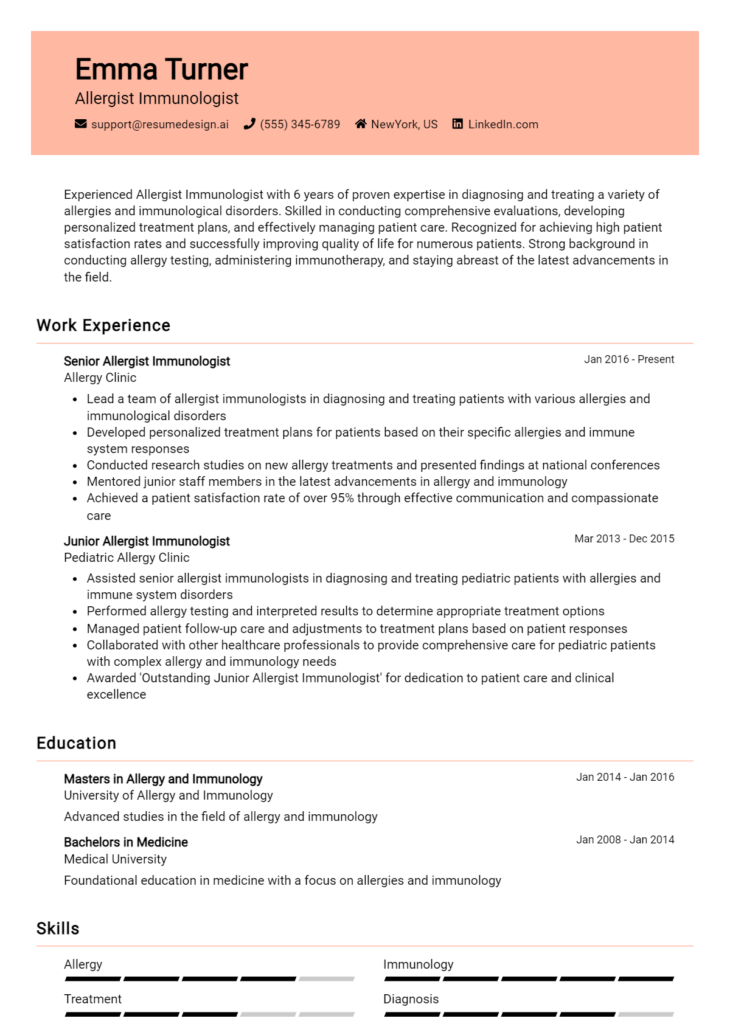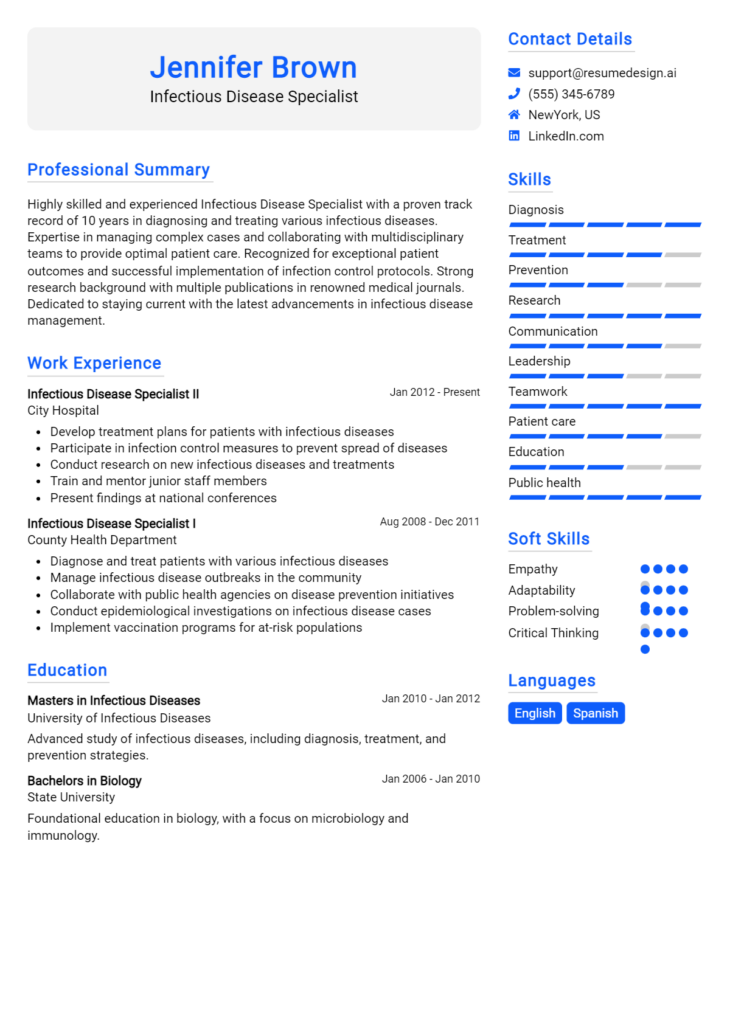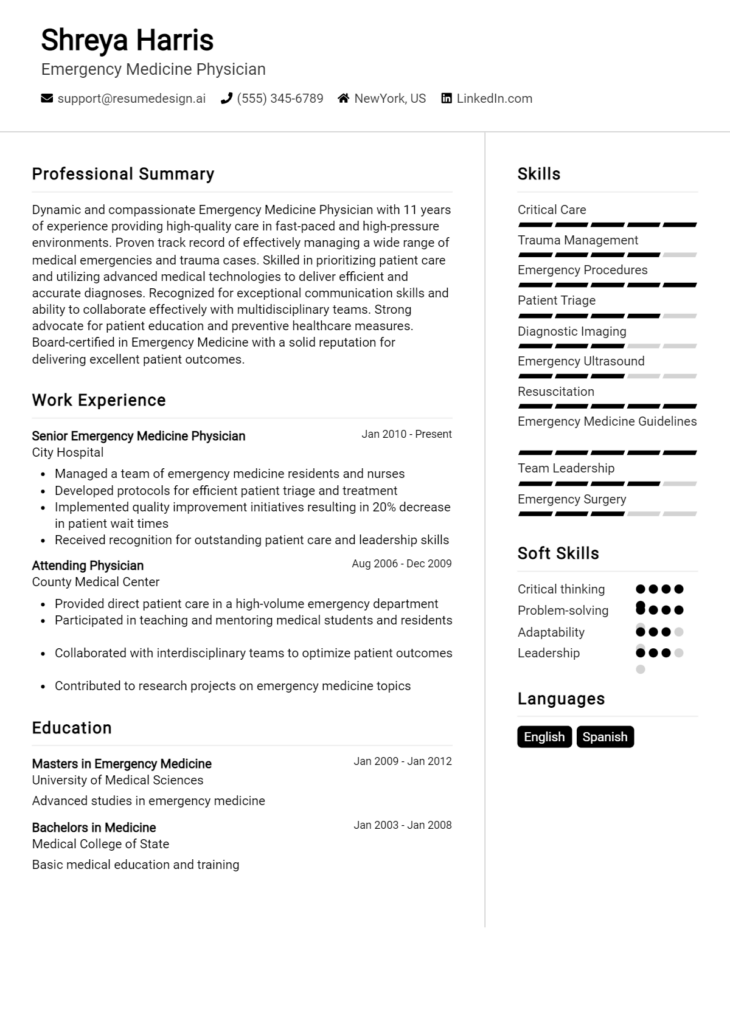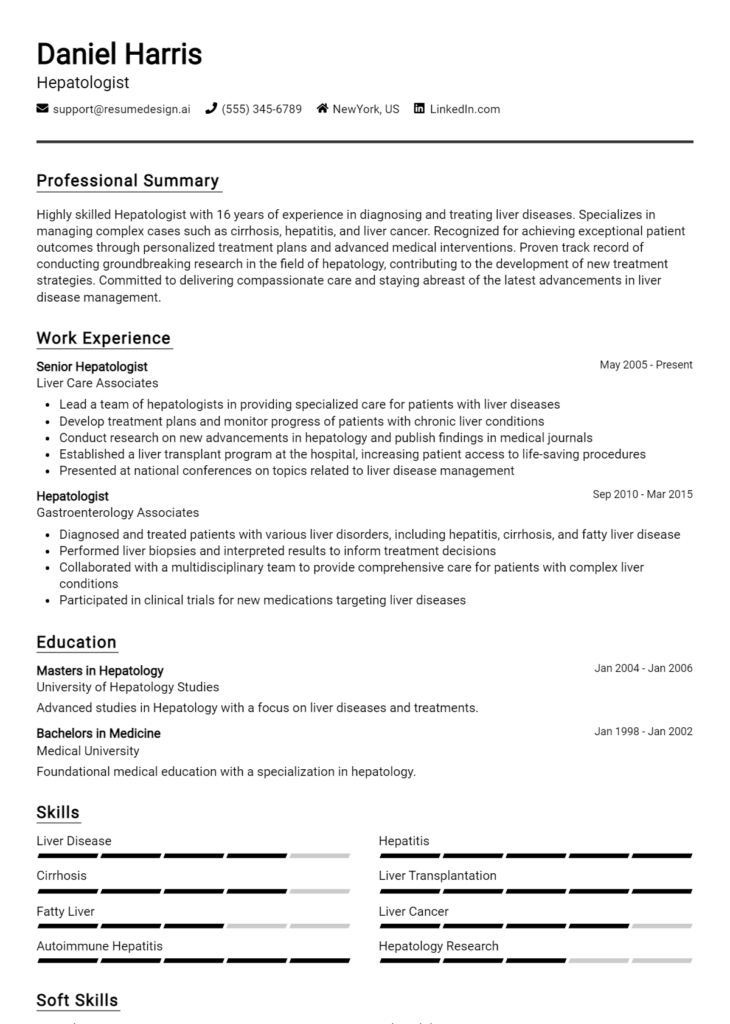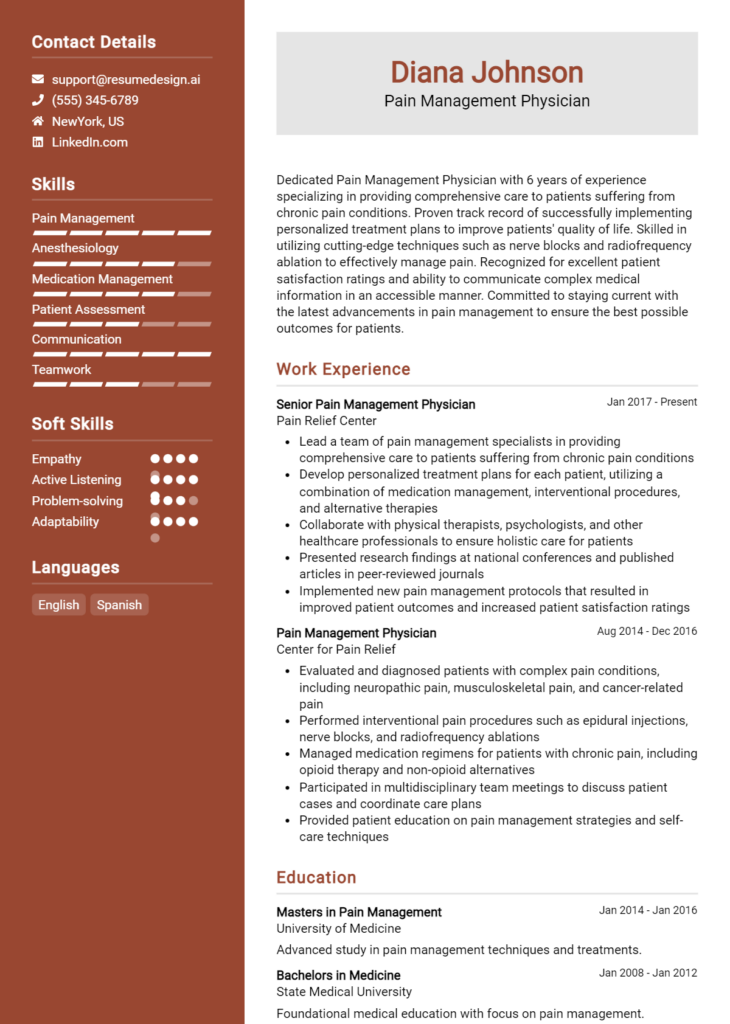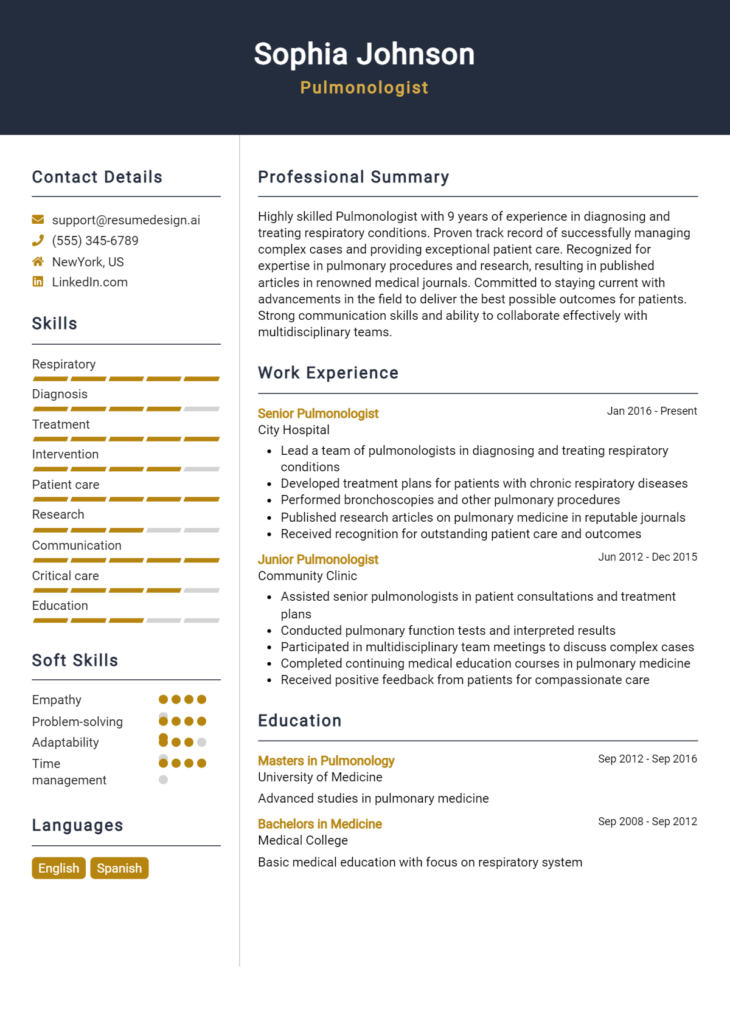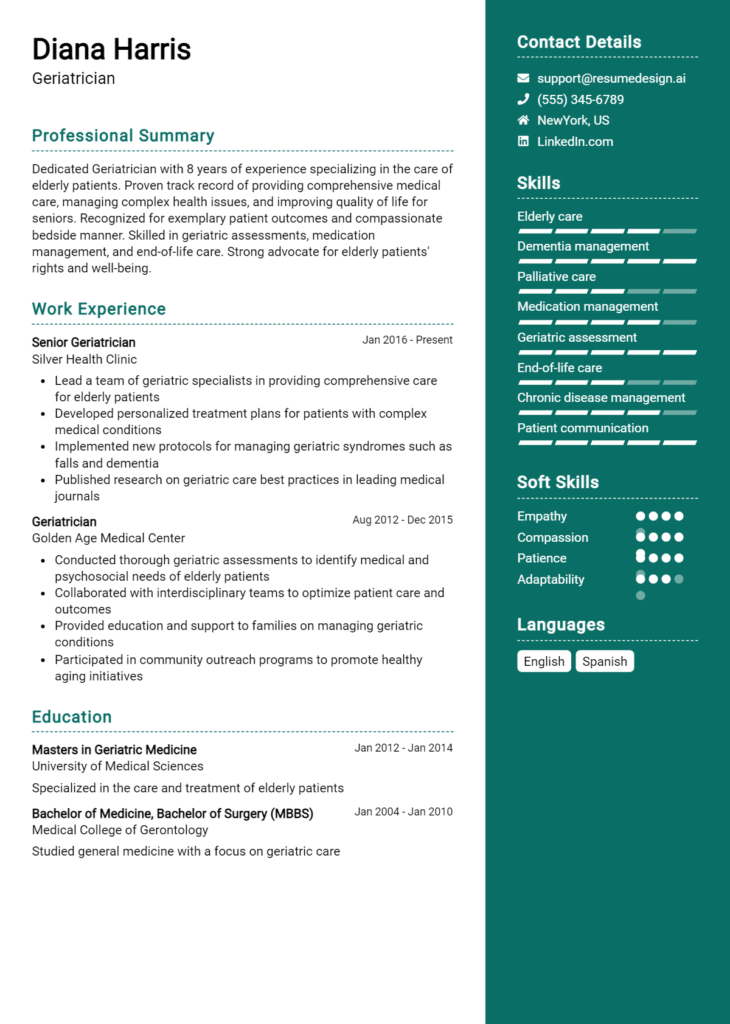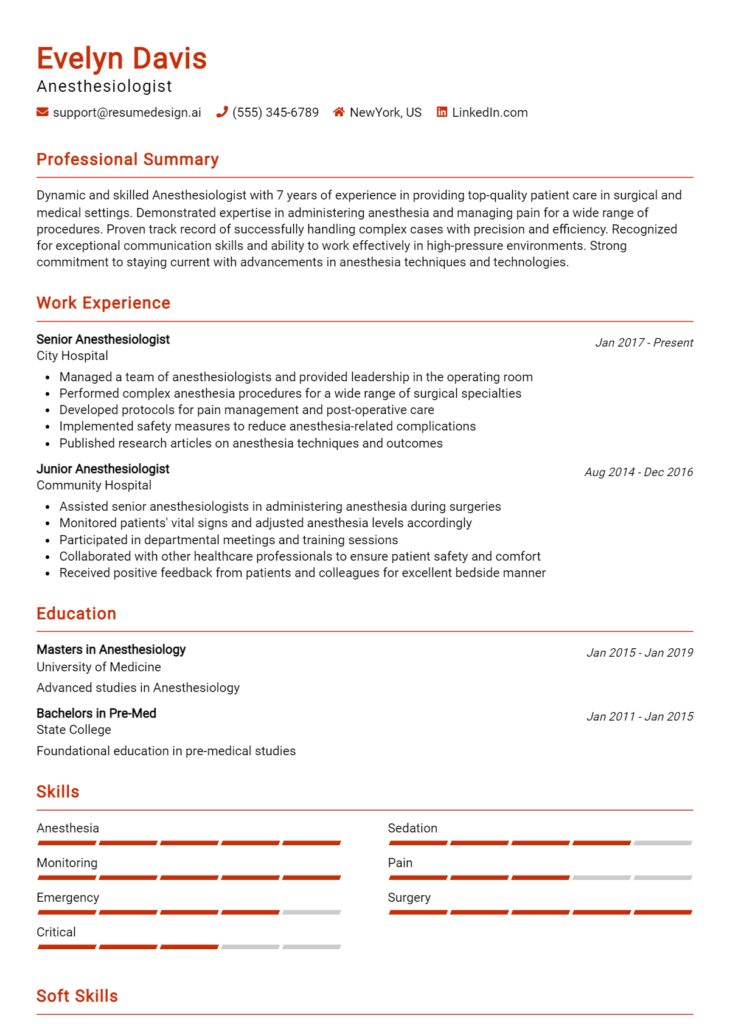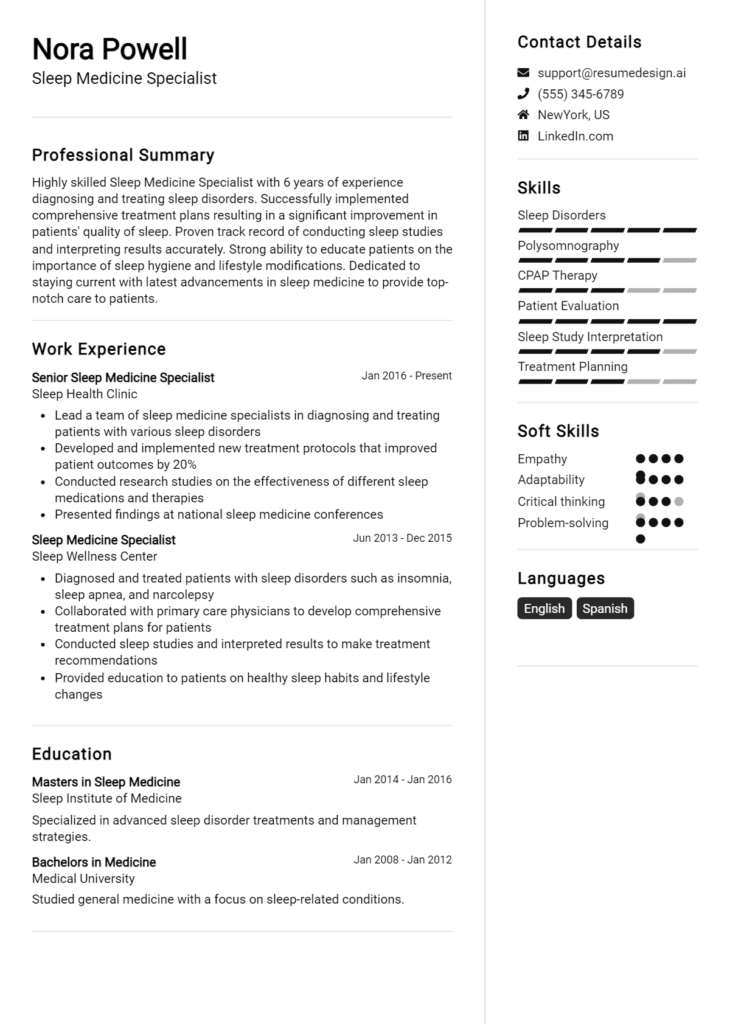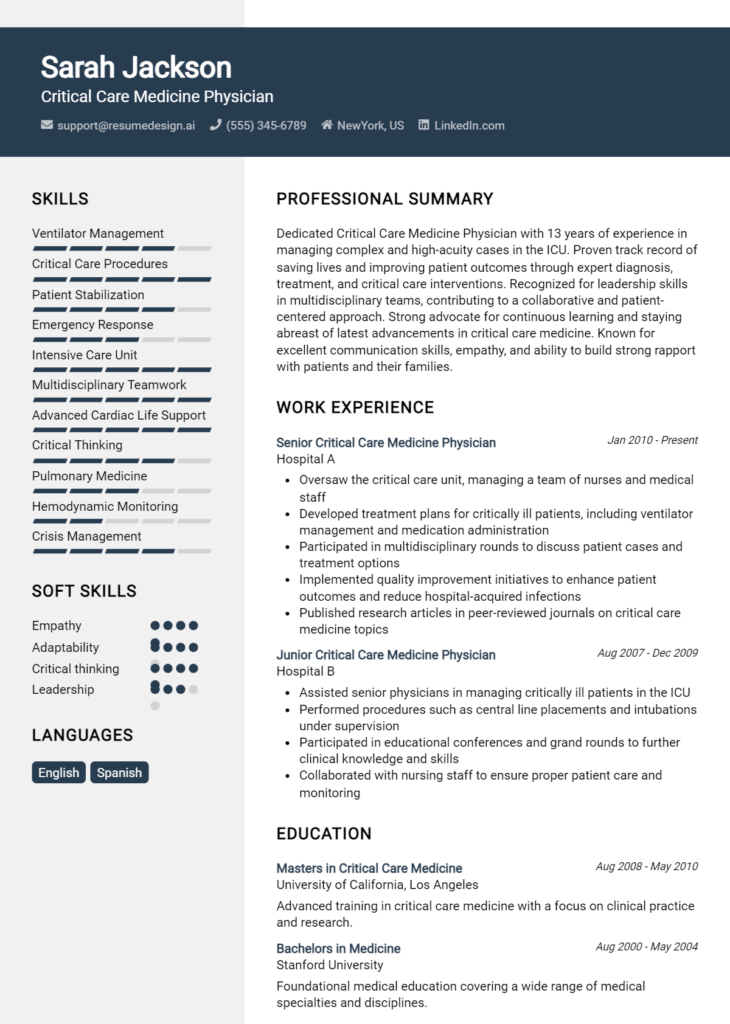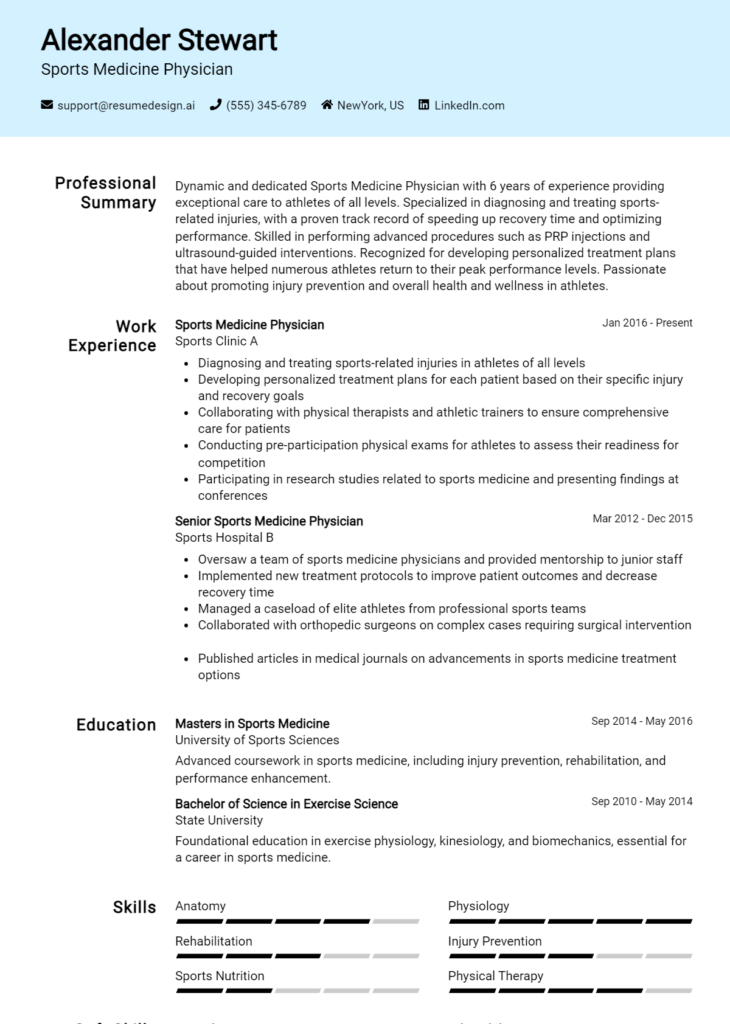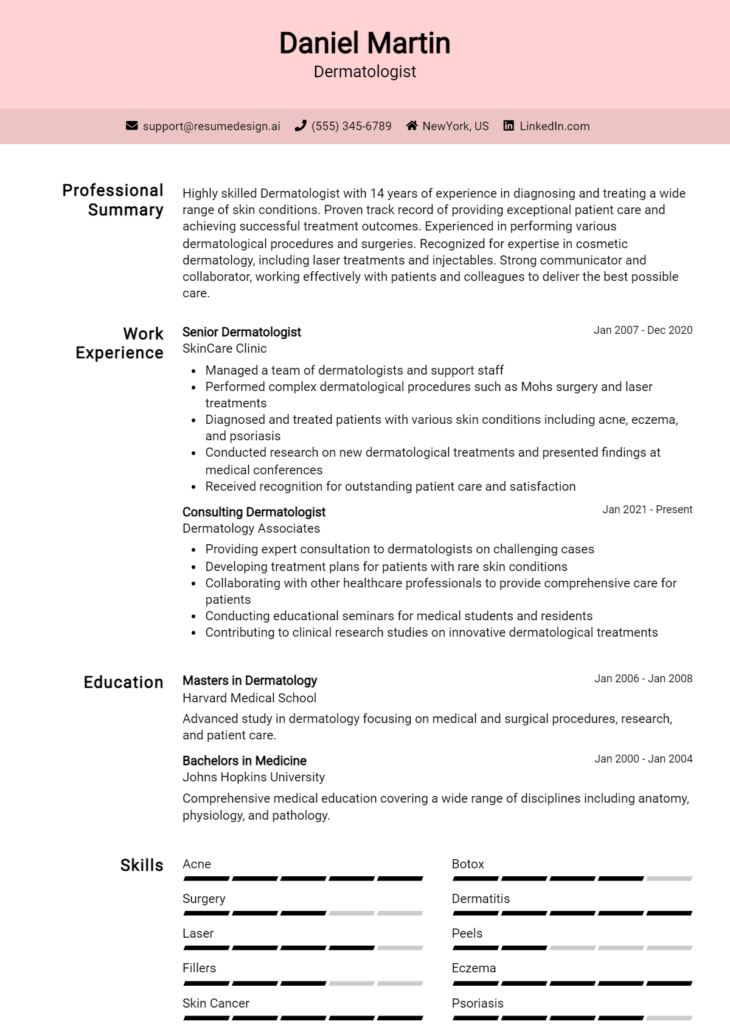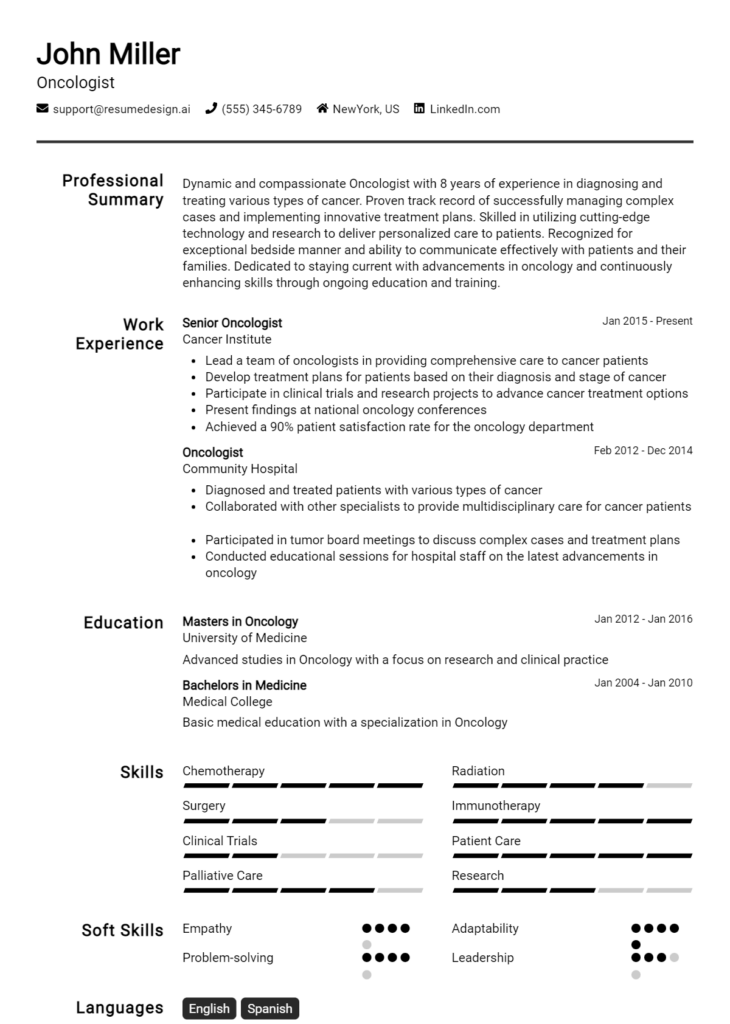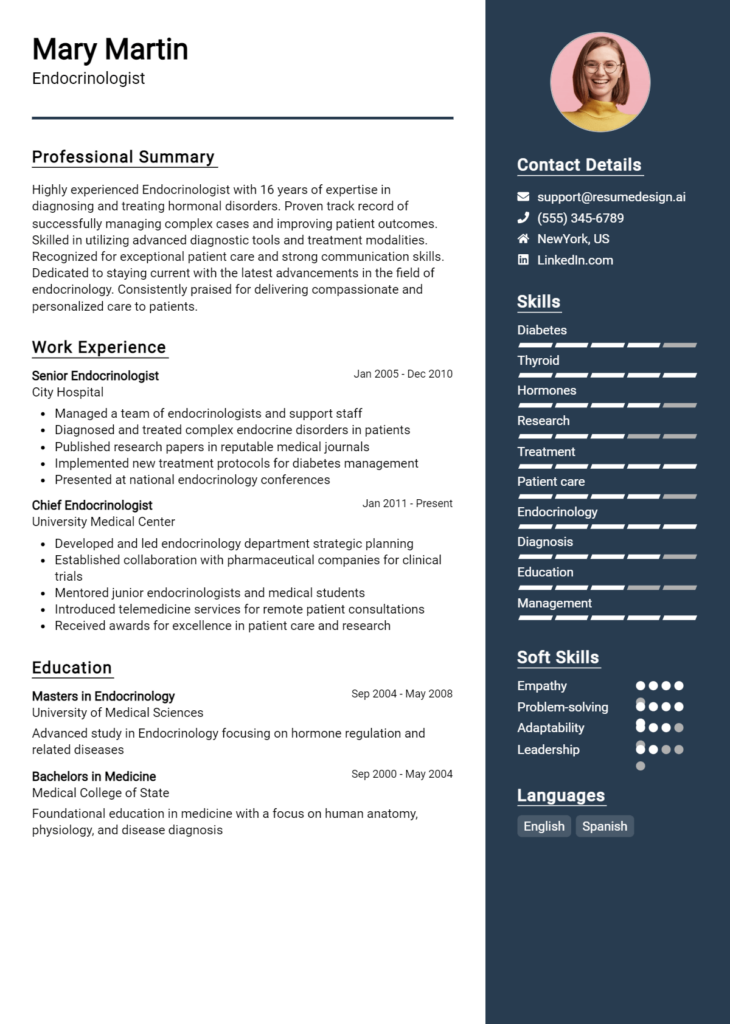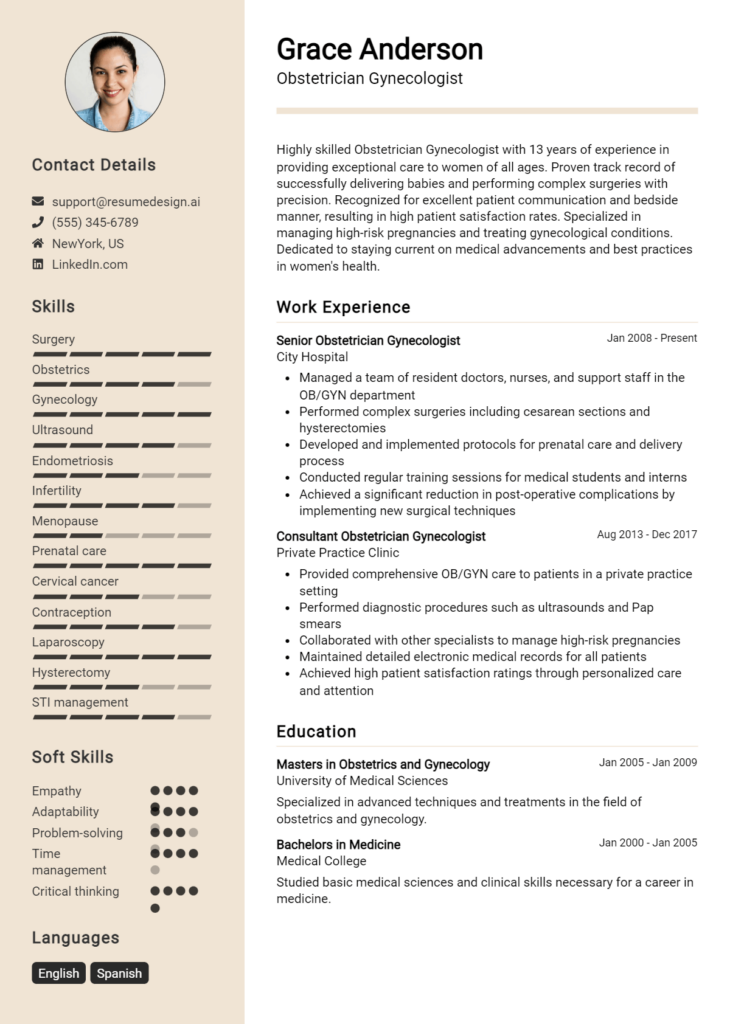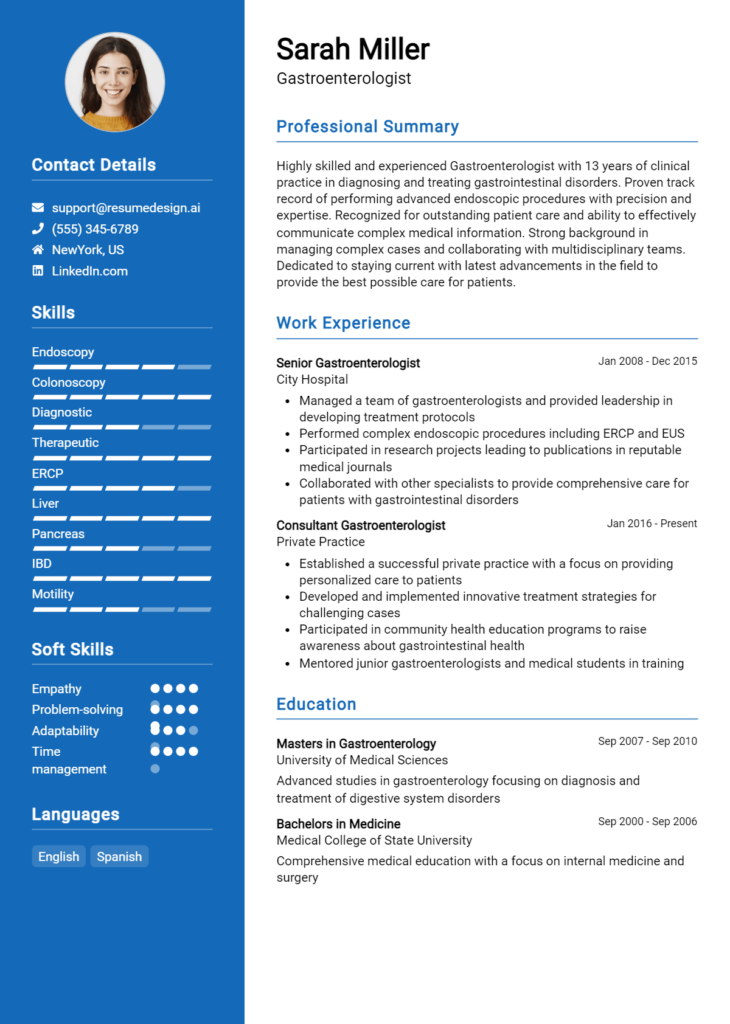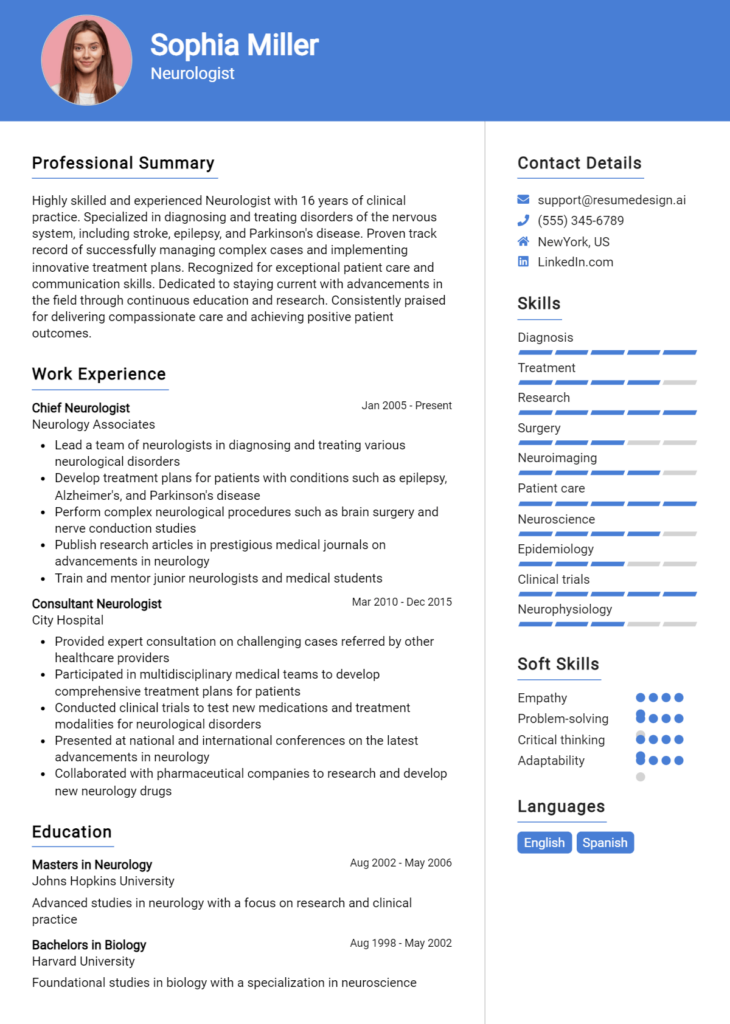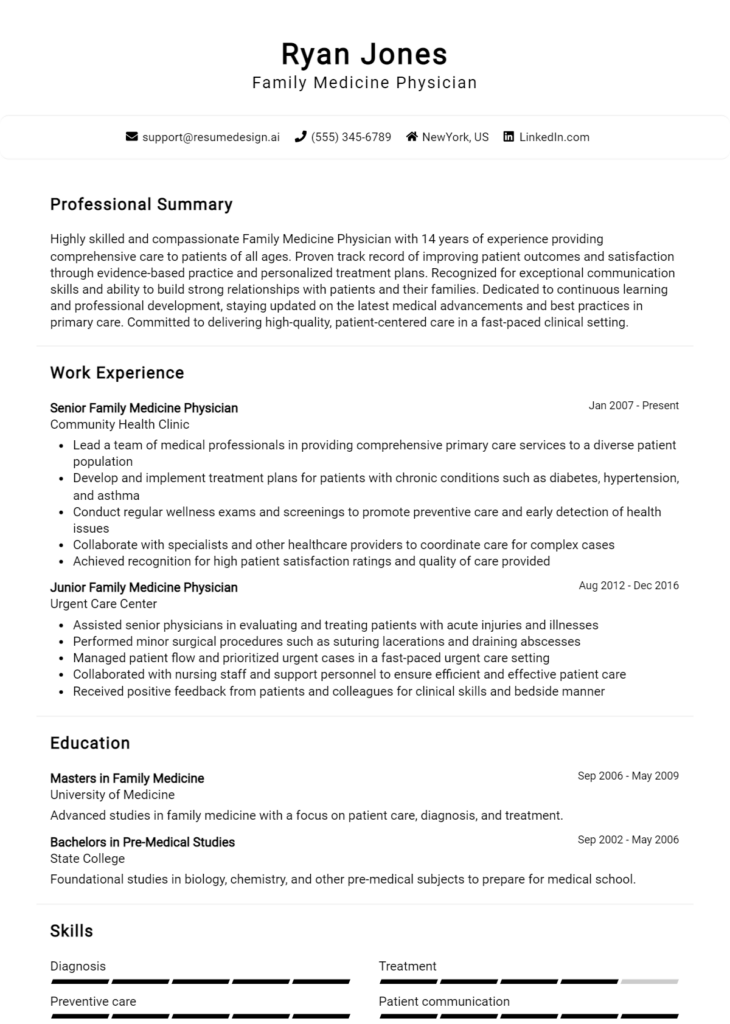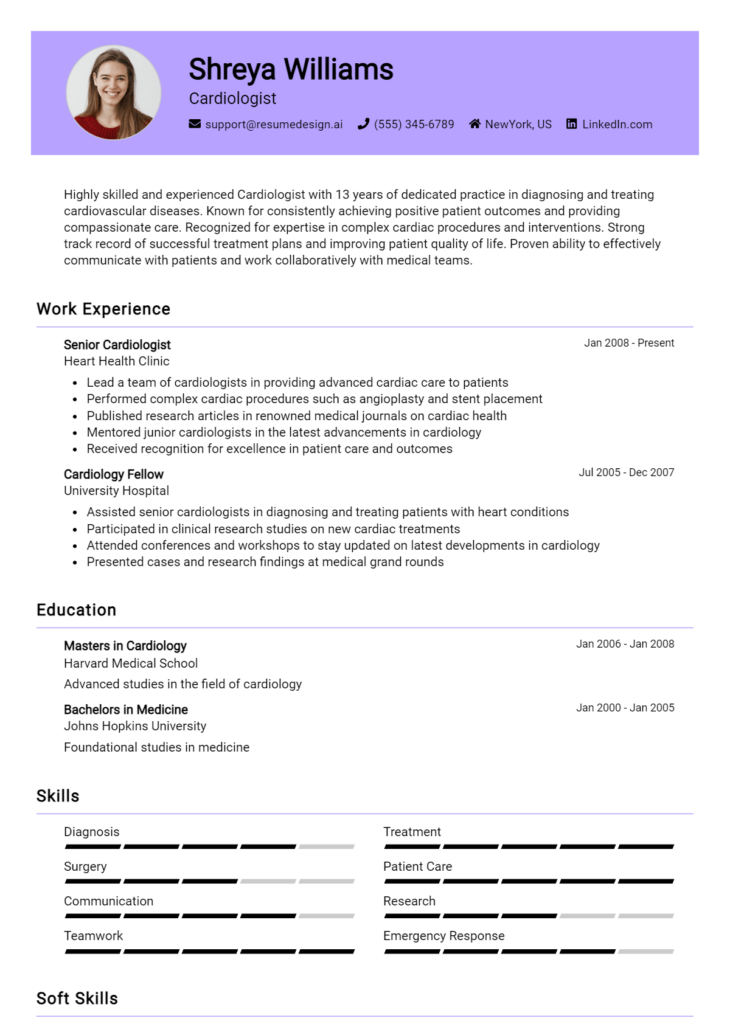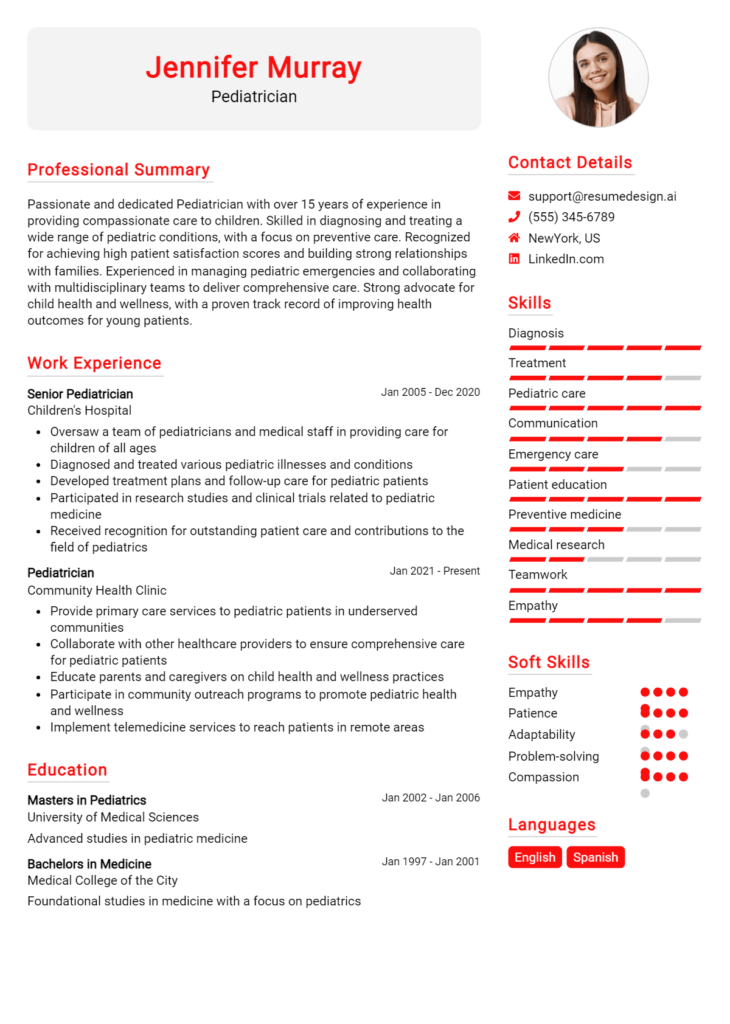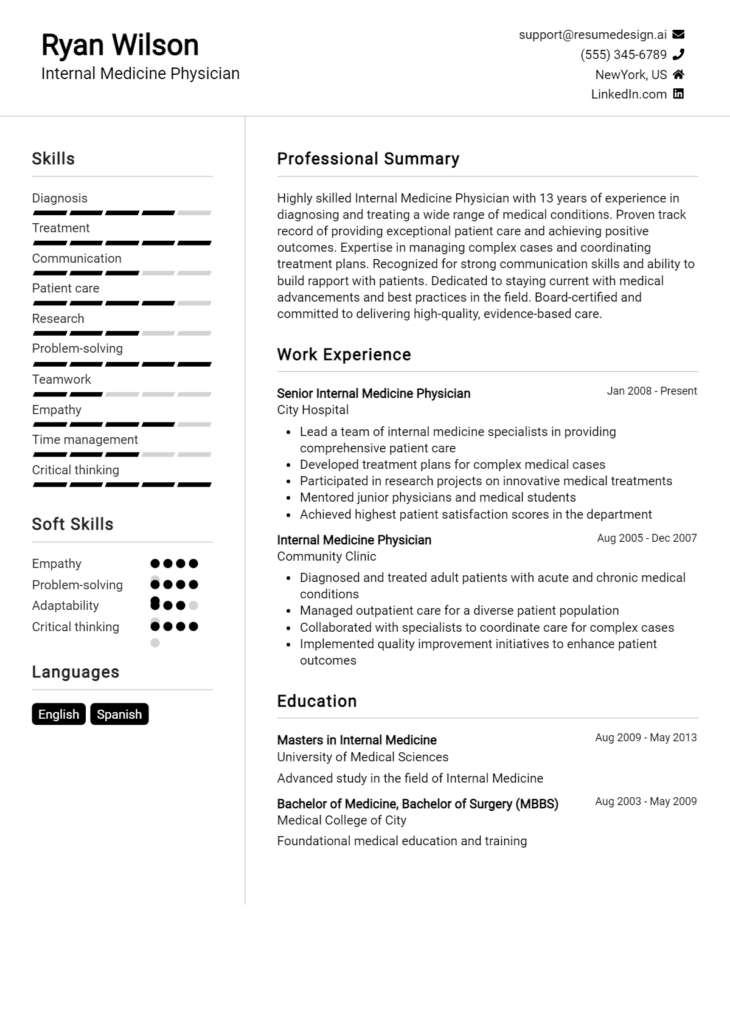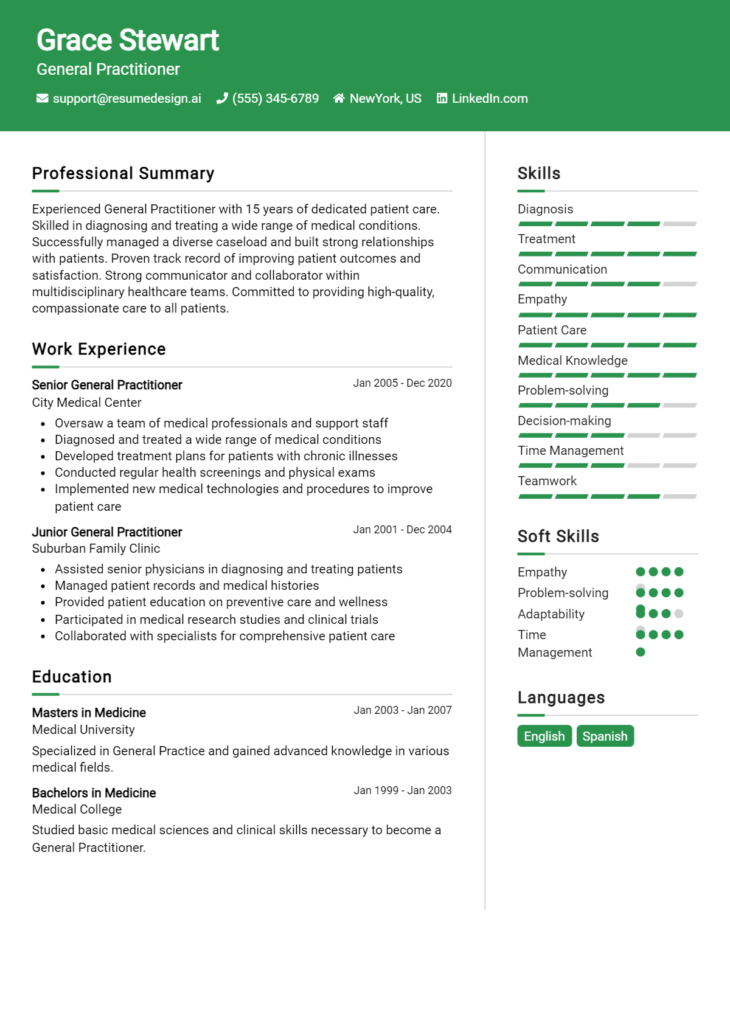Nephrologist Core Responsibilities
A Nephrologist specializes in diagnosing and treating kidney-related disorders, playing a crucial role in coordinating care among various departments such as primary care, endocrinology, and urology. Key responsibilities include conducting patient assessments, interpreting lab results, and developing treatment plans. Essential skills encompass technical expertise in renal function, operational efficiency in managing patient loads, and strong problem-solving abilities for complex cases. These competencies significantly contribute to the organization's overall healthcare objectives, emphasizing the need for a well-structured resume to effectively highlight these qualifications.
Common Responsibilities Listed on Nephrologist Resume
- Diagnosing and managing kidney diseases and disorders.
- Performing kidney biopsies and other diagnostic procedures.
- Monitoring patients undergoing dialysis treatment.
- Collaborating with primary care physicians and specialists.
- Interpreting laboratory results and imaging studies.
- Educating patients on kidney health and disease prevention.
- Developing individualized treatment plans.
- Conducting research on renal diseases and treatment outcomes.
- Managing electrolyte imbalances and hypertension.
- Providing emergency care for acute kidney injuries.
- Staying current with advancements in nephrology.
High-Level Resume Tips for Nephrologist Professionals
A well-crafted resume is crucial for Nephrologist professionals as it serves as the first impression a candidate makes on potential employers. In a competitive field where expertise and precision are paramount, your resume must effectively showcase your skills, experiences, and achievements. It is not just a list of past positions; it should reflect your dedication to patient care, your commitment to continual learning, and your contributions to the field of nephrology. This guide aims to provide practical and actionable resume tips tailored specifically for Nephrologists, helping you create a document that stands out and captures the attention of hiring managers.
Top Resume Tips for Nephrologist Professionals
- Tailor your resume to the specific job description by incorporating keywords and phrases that align with the role.
- Highlight your relevant clinical experience, including rotations, residencies, and fellowships in nephrology.
- Quantify your achievements by including metrics such as patient outcomes, research contributions, or the number of procedures performed.
- Showcase your certifications and licenses, ensuring they are prominently displayed to reflect your qualifications.
- Include any specialized skills relevant to nephrology, such as expertise in dialysis management, transplant nephrology, or chronic kidney disease protocols.
- Utilize a clear and professional format, making it easy for employers to skim your resume and find key information quickly.
- Incorporate a professional summary that succinctly outlines your career goals and highlights your most significant accomplishments.
- List any publications, presentations, or involvement in clinical trials to demonstrate your commitment to advancing the field.
- Keep your resume concise, ideally one to two pages, focusing on the most relevant information.
By implementing these tips, you can significantly enhance your resume's effectiveness, increasing your chances of landing a job in the nephrology field. A well-structured and targeted resume not only showcases your qualifications but also reflects your professional dedication, making you a compelling candidate for potential employers.
Why Resume Headlines & Titles are Important for Nephrologist
In the competitive field of nephrology, crafting an effective resume is crucial for standing out among other qualified candidates. A well-crafted resume headline or title serves as a powerful first impression, encapsulating a candidate's core competencies and professional identity in a succinct phrase. For nephrologists, a strong headline can immediately grab the attention of hiring managers, summarizing key qualifications such as clinical expertise, years of experience, and specialized skills. It should be concise, relevant, and directly aligned with the job being applied for, setting the tone for the rest of the resume and increasing the likelihood of securing an interview.
Best Practices for Crafting Resume Headlines for Nephrologist
- Keep it concise: Limit the headline to one or two impactful phrases.
- Be specific: Tailor the headline to highlight relevant nephrology expertise or specialties.
- Use strong action words: Choose dynamic verbs that convey your contributions and achievements.
- Incorporate keywords: Identify and include keywords from the job description to enhance visibility.
- Highlight certifications: Mention any specialized certifications or training relevant to nephrology.
- Showcase years of experience: Include a quantifiable measure of your experience in the field.
- Avoid jargon: Use clear language that can be understood by hiring managers and HR professionals.
- Reflect your career goals: Ensure the headline aligns with your professional aspirations in nephrology.
Example Resume Headlines for Nephrologist
Strong Resume Headlines
Board-Certified Nephrologist with 10+ Years of Clinical Experience in Chronic Kidney Disease Management
Experienced Nephrologist Specializing in Dialysis and Transplantation
Compassionate Nephrology Expert Committed to Patient-Centered Care and Innovative Treatment Solutions
Accomplished Nephrologist with Proven Track Record in Research and Clinical Trials
Weak Resume Headlines
Nephrologist Seeking Opportunities
Medical Professional Looking for a Job
The strong headlines are effective because they convey specific qualifications, years of experience, and areas of expertise that immediately communicate value to potential employers. They utilize impactful language and relevant keywords, making them memorable and attention-grabbing. Conversely, the weak headlines fail to impress due to their vague and generic nature, lacking essential details that would help distinguish the candidate from others. By not providing any substantial information, they miss the opportunity to engage hiring managers and highlight the candidate's unique strengths.
Writing an Exceptional Nephrologist Resume Summary
A well-crafted resume summary is crucial for a Nephrologist, as it serves as the first impression for hiring managers. This brief yet powerful introduction quickly captures attention by vividly showcasing key skills, relevant experience, and significant accomplishments that align with the job role. A strong summary is concise and impactful, tailored specifically for the position the candidate is applying for, making it an essential tool in the competitive healthcare job market.
Best Practices for Writing a Nephrologist Resume Summary
- Quantify Achievements: Use numbers or specific metrics to highlight success and impact, such as patient outcomes or procedural volume.
- Focus on Key Skills: Emphasize relevant skills, such as patient management, dialysis expertise, or research contributions.
- Tailor to the Job Description: Customize the summary to reflect the keywords and requirements outlined in the job posting.
- Keep it Concise: Aim for 2-4 sentences that succinctly convey your strengths and unique qualifications.
- Highlight Board Certifications: Mention any relevant board certifications or specialized training that add credibility.
- Showcase Team Collaboration: Include experiences that demonstrate your ability to work effectively within multidisciplinary teams.
- Use Action Words: Start sentences with dynamic verbs to convey energy and proactivity.
- Reflect Passion for Nephrology: Communicate your enthusiasm for the field and commitment to patient care.
Example Nephrologist Resume Summaries
Strong Resume Summaries
Board-certified Nephrologist with over 10 years of experience in managing complex renal cases. Successfully reduced patient hospitalization rates by 25% through the implementation of proactive care strategies and patient education programs.
Detail-oriented Nephrologist specializing in chronic kidney disease and dialysis management, with a proven track record of improving patient outcomes by 30% through tailored treatment plans and interdisciplinary collaboration.
Compassionate and results-driven Nephrologist with extensive experience in renal transplant surgeries, having performed over 150 successful procedures. Recognized for exceptional patient care and a collaborative approach in multidisciplinary teams.
Weak Resume Summaries
Experienced doctor with knowledge in nephrology and patient care.
Nephrologist looking for a challenging position in a hospital setting.
The strong resume summaries stand out because they provide specific achievements, quantifiable results, and demonstrate a deep understanding of the Nephrology field. In contrast, the weak summaries are vague, lacking detail and measurable outcomes, making them less compelling and memorable to hiring managers.
Work Experience Section for Nephrologist Resume
The work experience section of a Nephrologist resume is critical as it allows candidates to demonstrate their technical skills, clinical expertise, and leadership capabilities. This section serves as a platform for showcasing their ability to manage teams effectively and deliver high-quality patient care and outcomes. By quantifying achievements and aligning their experiences with industry standards, candidates can present a compelling narrative that highlights their contributions to the field of nephrology, making them stand out to potential employers.
Best Practices for Nephrologist Work Experience
- Highlight specific technical skills related to nephrology, such as dialysis management, kidney transplant procedures, and patient assessment techniques.
- Quantify achievements by including metrics, such as patient recovery rates, reduction in hospitalization days, or improvements in lab results.
- Showcase collaborative projects with multidisciplinary teams, emphasizing communication and teamwork in patient care.
- Detail leadership roles held, including mentoring residents and leading clinical initiatives.
- Include relevant certifications and specialized training that enhance clinical capabilities.
- Focus on outcomes, illustrating how your contributions led to improved patient care or operational efficiencies.
- Utilize action verbs to create a dynamic narrative of your experiences.
- Tailor your experiences to align with the specific requirements and values of the prospective employer.
Example Work Experiences for Nephrologist
Strong Experiences
- Led a team of nephrology specialists in implementing a new patient monitoring system, resulting in a 30% decrease in emergency room visits related to kidney complications.
- Managed a dialysis unit that achieved a patient satisfaction score of 95%, improving care coordination and follow-up processes.
- Participated in a research study on chronic kidney disease, which resulted in a published paper that has been cited over 100 times in the nephrology community.
- Developed a patient education program that improved medication adherence rates among patients by 40%, significantly enhancing treatment outcomes.
Weak Experiences
- Worked with patients in a clinical setting.
- Assisted in various procedures related to kidney care.
- Participated in team meetings and discussions.
- Gained experience in nephrology through various tasks.
The examples are considered strong because they provide clear, quantifiable outcomes and demonstrate leadership and collaboration in impactful ways, showcasing the candidate's ability to contribute to patient care effectively. In contrast, the weak experiences are vague, lacking specific achievements or details that would illustrate the candidate's expertise and contributions, making it difficult for potential employers to assess their qualifications.
Education and Certifications Section for Nephrologist Resume
The education and certifications section of a Nephrologist's resume is crucial as it serves to showcase the candidate's academic credentials, specialized training, and commitment to continuous learning in the field of nephrology. This section reflects not only the candidate's foundational knowledge but also their adherence to industry standards and best practices. By highlighting relevant coursework, advanced certifications, and ongoing professional development, candidates can significantly enhance their credibility and demonstrate their alignment with the specific requirements of the job role. A well-crafted education and certifications section can set a candidate apart in a competitive job market, making a compelling case for their expertise and dedication to patient care.
Best Practices for Nephrologist Education and Certifications
- Include relevant degrees such as Doctor of Medicine (MD) or Doctor of Osteopathic Medicine (DO).
- List board certifications, such as Board Certified in Nephrology.
- Highlight any specialized training or fellowships in nephrology.
- Incorporate relevant coursework, especially in areas like renal physiology, pharmacology, and critical care.
- Update the section regularly to reflect new certifications or educational achievements.
- Ensure that all credentials are current and valid, providing dates of certification when possible.
- Use clear and concise language to describe each educational achievement and certification.
- Tailor this section to align with the specific requirements of the job description.
Example Education and Certifications for Nephrologist
Strong Examples
- Doctor of Medicine (MD), Harvard Medical School, 2015
- Board Certified in Nephrology, American Board of Internal Medicine, 2018
- Fellowship in Nephrology, Johns Hopkins University, 2017
- Advanced Renal Pathophysiology Coursework, University of California, 2016
Weak Examples
- Bachelor of Arts in History, University of Florida, 2010
- Certification in Basic Life Support (BLS), Expired 2020
- Online Course in Creative Writing, 2019
- General Medical License, Not updated since 2015
The strong examples are considered effective because they directly relate to the field of nephrology, showcasing relevant degrees, certifications, and specialized training that align with the expectations for a nephrologist. In contrast, the weak examples demonstrate a lack of relevance to the nephrology field and may indicate outdated or unhelpful qualifications that do not support the candidate's professional standing or expertise in nephrology.
Top Skills & Keywords for Nephrologist Resume
A well-crafted resume is crucial for a Nephrologist, as it highlights the essential skills that set you apart in a competitive field. Emphasizing both hard and soft skills can significantly enhance your application, showcasing your medical expertise and interpersonal capabilities. A strong resume not only reflects your technical knowledge and clinical experience but also illustrates your ability to communicate effectively with patients and colleagues. Utilizing the right skills can help you stand out and demonstrate your suitability for the role.
Top Hard & Soft Skills for Nephrologist
Soft Skills
- Empathy
- Communication
- Problem-solving
- Critical thinking
- Team collaboration
- Time management
- Adaptability
- Patient education
- Conflict resolution
- Attention to detail
- Compassion
- Active listening
- Stress management
- Leadership
- Cultural competency
Hard Skills
- Proficiency in dialysis procedures
- Knowledge of renal pharmacology
- Ability to interpret lab results
- Expertise in ultrasound and imaging techniques
- Experience with kidney transplant processes
- Proficient in electronic health records (EHR) systems
- Familiarity with nephrology-specific software
- Understanding of hypertension management
- Skills in performing biopsies
- Knowledge of chronic kidney disease (CKD) management
- Ability to conduct patient assessments
- Familiarity with dietary management for renal patients
- Competency in managing acute kidney injury (AKI)
- Research and data analysis skills
- Ability to develop treatment plans
- Knowledge of regulatory compliance in nephrology
- Experience in patient follow-up and care coordination
- Clinical trial management experience
In addition to showcasing these skills, remember to detail your work experience effectively, ensuring that you highlight your clinical achievements and contributions to patient care.
Stand Out with a Winning Nephrologist Cover Letter
Dear [Hiring Manager's Name],
I am writing to express my interest in the Nephrologist position at [Hospital/Clinic Name], as advertised [where you found the job listing]. With a robust background in kidney health and a commitment to providing high-quality patient care, I am excited about the opportunity to contribute to your esteemed team. My extensive experience in diagnosing and treating renal diseases, along with my dedication to advancing nephrology through research and education, aligns perfectly with the mission of [Hospital/Clinic Name].
During my [number] years of practice in nephrology, I have developed a comprehensive skill set that includes managing chronic kidney disease, performing dialysis, and implementing innovative treatment plans tailored to individual patient needs. My time at [Previous Institution/Practice] allowed me to hone my clinical skills while also collaborating with multidisciplinary teams to enhance patient outcomes. I am particularly proud of my work in [specific project or initiative], which not only improved patient care but also fostered a supportive environment for both staff and patients.
In addition to my clinical expertise, I am passionate about patient education and advocacy. I believe that empowering patients with knowledge about their conditions is essential for effective management and improved quality of life. At [Previous Institution/Practice], I initiated community outreach programs that focused on kidney health awareness, which significantly increased patient engagement and understanding of renal issues. I am eager to bring this proactive approach to [Hospital/Clinic Name], ensuring that patients receive comprehensive care that extends beyond the clinic.
I am thrilled at the prospect of joining [Hospital/Clinic Name] and contributing to its reputation as a leader in nephrology. I look forward to the opportunity to discuss how my background, skills, and enthusiasms can support your team and enhance patient care. Thank you for considering my application. I hope to speak with you soon.
Sincerely,
[Your Name]
[Your Contact Information]
Common Mistakes to Avoid in a Nephrologist Resume
When applying for a position as a nephrologist, crafting a polished and effective resume is crucial for making a strong first impression. However, many candidates fall into common pitfalls that can hinder their chances of landing an interview. Understanding these mistakes can help nephrologists present their qualifications more effectively and avoid potential red flags in their resumes. Here are some common mistakes to watch out for:
Using a Generic Template: Many candidates rely on one-size-fits-all resume templates, which can lack personalization. Tailoring your resume to highlight relevant experience in nephrology shows attention to detail and a genuine interest in the position.
Neglecting Relevant Experience: Failing to emphasize specific nephrology-related experiences can lead to missed opportunities. It's essential to showcase relevant clinical rotations, fellowships, and research that demonstrate your expertise in kidney health.
Poor Organization: A cluttered or disorganized resume can confuse hiring managers. Use clear headings and bullet points to present information in a structured manner, making it easy for employers to sift through your qualifications.
Overloading with Jargon: While medical terminology is important, excessive jargon can alienate non-medical hiring personnel. Striking a balance between professional language and clarity ensures that your resume is accessible to all readers.
Ignoring Achievements: Simply listing job duties without mentioning accomplishments can diminish the impact of your experiences. Highlighting specific achievements, such as successful patient outcomes or research contributions, shows your value as a nephrologist.
Lack of Continuing Education: Neglecting to mention ongoing education, certifications, and training can suggest stagnation in your professional development. Including relevant courses or workshops demonstrates your commitment to staying updated in the field.
Inconsistent Formatting: Inconsistent fonts, bullet styles, and spacing can make your resume look unprofessional. Aim for uniformity throughout to present a polished and cohesive document.
Omitting Contact Information: It may seem basic, but failing to include accurate and up-to-date contact information can lead to missed opportunities. Always ensure that your phone number, email, and LinkedIn profile (if applicable) are clearly listed.
Conclusion
As a nephrologist, you play a vital role in diagnosing and treating kidney-related conditions, which requires not only extensive medical knowledge but also a strong professional presence. Having a well-crafted resume is essential in showcasing your skills, experience, and qualifications to potential employers.
In this article, we covered the key responsibilities of a nephrologist, including patient assessments, managing chronic kidney disease, and supporting renal transplant patients. We also discussed the importance of continuous education and staying updated with the latest advancements in nephrology.
Now is the perfect time to review your nephrologist resume to ensure it reflects your expertise and accomplishments. Highlight your clinical rotations, research contributions, and any specialized training you have undertaken.
To assist you in this process, there are several resources available at your fingertips. Explore resume templates to find a design that suits your professional style. You can also utilize the resume builder for a step-by-step approach to create a polished resume. Additionally, reviewing resume examples can provide inspiration and help you see how other nephrologists present their qualifications. Don’t forget to craft a compelling cover letter using cover letter templates that complement your resume.
Take the next step in advancing your career by updating your resume today!

